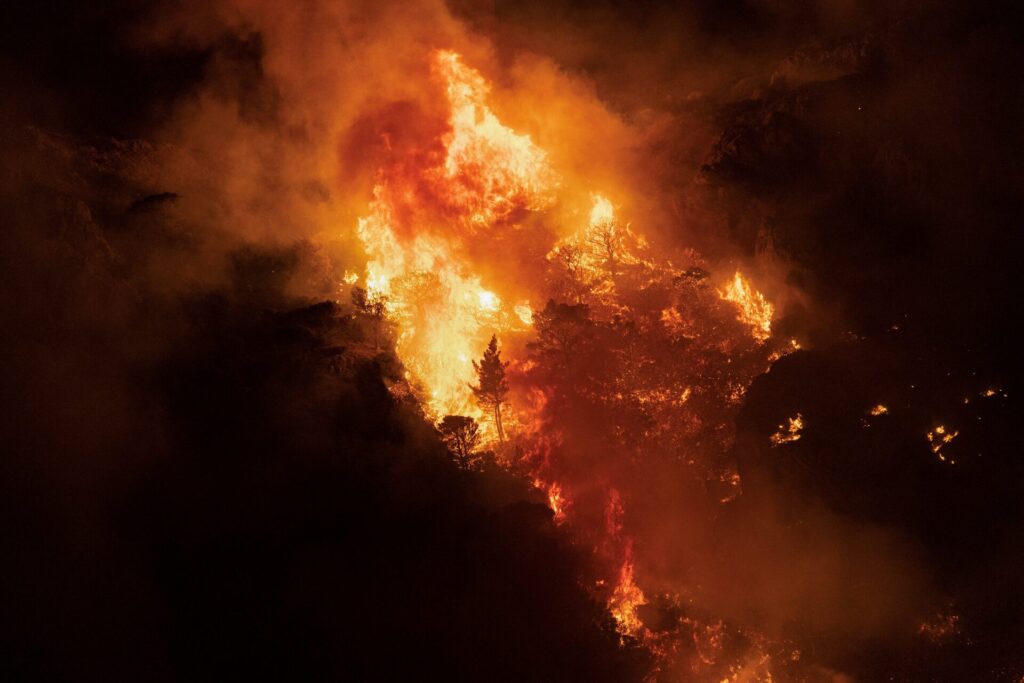A fast-moving wildfire erupted on Sunday near Athens, forcing residents to flee their homes as the blaze, driven by hot and windy conditions, tore through trees, houses, and vehicles, sending plumes of smoke over the Greek capital.
The wildfire, which ignited around 3 p.m. local time near the village of Varnavas, approximately 35 km (20 miles) north of Athens, quickly spread, propelled by strong gale-force winds. By nightfall, the flames had engulfed the area, casting an orange glow across the sky as firefighting aircraft were grounded until dawn.
Over 400 firefighters, supported by 16 water-dropping planes and 13 helicopters, were deployed to battle the inferno. However, the situation remained critical as the fire continued to spread rapidly through residential areas. “The fire spread like lightning due to the strong winds, with flames reaching up to 25 meters, consuming trees and shrubland,” stated fire brigade spokesperson Vassilis Vathrakogiannis.
Varnavas, a sparsely populated village with around 1,800 inhabitants, was quickly surrounded by the advancing flames. “The village was encircled in no time,” recounted local resident Katerina Fylaktou. “It started at one point, and suddenly the entire village was under threat.”
Greece has been plagued by hundreds of wildfires since May, with scientists attributing the increased frequency and intensity of these blazes to hotter and drier conditions linked to climate change. Following its warmest winter on record and prolonged periods of minimal rainfall, Greece also experienced its hottest June and July, and this summer is forecast to be the hottest in the country’s history.
Kostas Lagouvardos, research director at the Athens Observatory, warned of the potential escalation of the Varnavas wildfire if it is not contained overnight. “We are facing a very difficult week ahead,” he cautioned.
The fire near Varnavas was one of several blazes affecting Greece. Authorities issued evacuation alerts for nine areas surrounding Varnavas as thick smoke covered much of Athens, reaching as far as the island of Aegina. Another wildfire near the town of Megara, west of Athens, was brought under control by Sunday afternoon.
In response to the severe fire risks, Climate Crisis and Civil Protection Minister Vassilis Kikilias announced emergency measures involving the army, police, and volunteers to combat forest fires until August 15. “Extremely high temperatures and hazardous weather conditions will persist,” he warned, adding that “half of Greece will be on high alert.”
The wildfires in Greece are part of a broader pattern of extreme heat and fires affecting Europe, with countries like Spain and the Balkans also grappling with severe blazes this summer. A European Commission report from April indicated that the 2023 wildfire season in Europe is among the worst this century.



